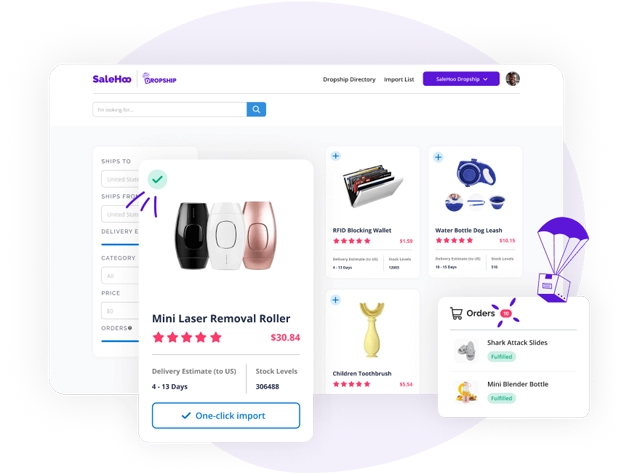How to Successfully Start Your Event Business and Thrive!

Starting an event business can be incredibly rewarding. Whether you love planning weddings, corporate gatherings, or community events, there’s never been a better time to jump into this exciting industry. With the flexibility of being your own boss, you can create meaningful experiences for others and have the potential to earn a solid income. Event planning allows you to showcase your creativity, problem-solving skills, and attention to detail.
If you’re looking to start your event business, this guide is here to provide you with step-by-step instructions, tips, and valuable resources to help you succeed. Keep reading, and by the end, you’ll be ready to launch your dream event company!
Table of Contents
Understanding the Event Planning Industry
Before diving into the “how-to” of starting your event business, it’s important to understand the industry itself. The event planning industry covers a wide range of services, from planning corporate events and private parties to weddings and conferences. In recent years, the demand for event coordinators has grown, as businesses and individuals increasingly turn to experts to handle the planning process.
To succeed, it’s essential to understand the market you’re entering and identify the specific niche that excites you the most. There’s a vast difference between organizing a wedding and a large corporate trade show. Knowing where your passion and skills align will help you tailor your services effectively.
Steps to Starting Your Own Event Business
Starting an event business may seem daunting, but with the right guidance and a clear plan, it becomes a step-by-step process. Here’s how to get started:
1. Market Research and Identifying Your Niche
Before launching your event business, start by researching your local market. Are there many competitors? What services are in demand? This will help you carve out your niche—whether that’s weddings, corporate events, birthday parties, or something else entirely. The more you understand your potential customers, the better you can position your services.
Once you know your niche, consider how you can stand out. Maybe you want to focus on sustainable events or luxury weddings. Whatever it is, this will become the backbone of your business.
2. Building a Business Plan
Creating a detailed business plan is essential for any successful business. This will outline your goals, target market, financial projections, and operational plan. Think about how you’ll structure your event company—will you be a solo event coordinator, or will you hire a team to assist with larger events?
Include these sections in your business plan:
- Executive Summary: Brief overview of your event company.
- Market Analysis: Who are your competitors and clients?
- Marketing Strategy: How will you attract clients?
- Financial Plan: What are your startup costs and projected earnings?
3. Legal Requirements and Insurance
Running a legitimate event company means adhering to local business regulations. Depending on your location, you may need a business license, event permits, and liability insurance. Make sure you understand the legal requirements to protect both you and your clients.
Investing in insurance is crucial for event planners, as you’ll be responsible for handling client money, venues, and sometimes alcohol. It’s always better to be safe and avoid potential lawsuits in the future.
4. Branding Your Event Company
Branding is essential for attracting clients. Think about what you want your event company to be known for. Do you want to be seen as creative, professional, or luxurious? Develop a logo, website, and social media profiles that align with your brand identity.
Essential Skills for an Event Coordinator
As an event coordinator, you’ll wear many hats. Here are some key skills you’ll need:
- Organization: Keeping track of multiple event details at once.
- Communication: Working with vendors, clients, and your team.
- Problem-Solving: Thinking on your feet when things go wrong.
- Creativity: Bringing clients’ visions to life.
- Time Management: Meeting deadlines and managing multiple events.
While these skills are critical, don’t worry if you don’t have all of them perfected just yet. Resources like the Event Planning Blueprint Course can help you master these essential skills.
Setting Up Your Event Business for Success
1. Creating a Website and Online Presence
Your website will be the first impression potential clients have of your business, so make it count. It should be easy to navigate and showcase your services and previous events. Make sure to include testimonials, pricing, and a contact form to make it easy for clients to reach you.
Don’t forget to leverage social media platforms like Instagram, Facebook, and LinkedIn. These can be powerful tools to share your work and attract new clients.
2. Managing Finances and Pricing
Setting up your pricing structure can be tricky. You’ll need to factor in your time, the complexity of the event, and any additional costs (like hiring vendors or renting equipment). It’s important to stay competitive while still covering your costs and making a profit.
Consider offering packages for different event types or levels of service. For example, you might offer a full-service wedding package, as well as a smaller, day-of coordination option.
3. Tools to Streamline Your Event Planning Process
There are plenty of tools that can help you manage your event company more effectively. From project management software to invoicing tools, using technology can help streamline your business and reduce stress.
Tools like HoneyBook and Asana can help keep you organized, while social media scheduling platforms like Hootsuite or Buffer can simplify your marketing efforts.
Marketing and Growing Your Event Business
1. Networking and Building Relationships
Event planning is a people-driven industry. Building strong relationships with venues, vendors, and other professionals is essential. Attend local networking events, join online groups, and don’t be afraid to reach out to potential partners.
2. Utilizing Social Media and Online Ads
Social media platforms like Instagram and Pinterest are ideal for showcasing your events. Run ads to target local businesses and engaged couples in your area, and consider hosting contests or giveaways to gain more visibility.
Why Choose Event Planning Blueprint for Your Event Business Success?
As you embark on your journey to start an event business, you’ll want expert guidance to ensure your success. The Event Planning Blueprint Course offers comprehensive lessons that cover everything from finding clients to managing large-scale events. By taking this course, you’ll save time, avoid costly mistakes, and gain the confidence you need to thrive in the industry.
Insert Affiliate Link Here for Event Planning Blueprint Course (This is the perfect place for a final call-to-action, reminding readers that they can enhance their skills and knowledge with this course.)
The Exciting Path Ahead
Starting an event business may feel challenging, but with the right tools, skills, and guidance, you can thrive in this rewarding industry. By following the steps in this guide, you’ll be well on your way to building a successful event company that clients trust and love. Now, it’s time to take the leap and turn your passion for planning into a thriving business.



